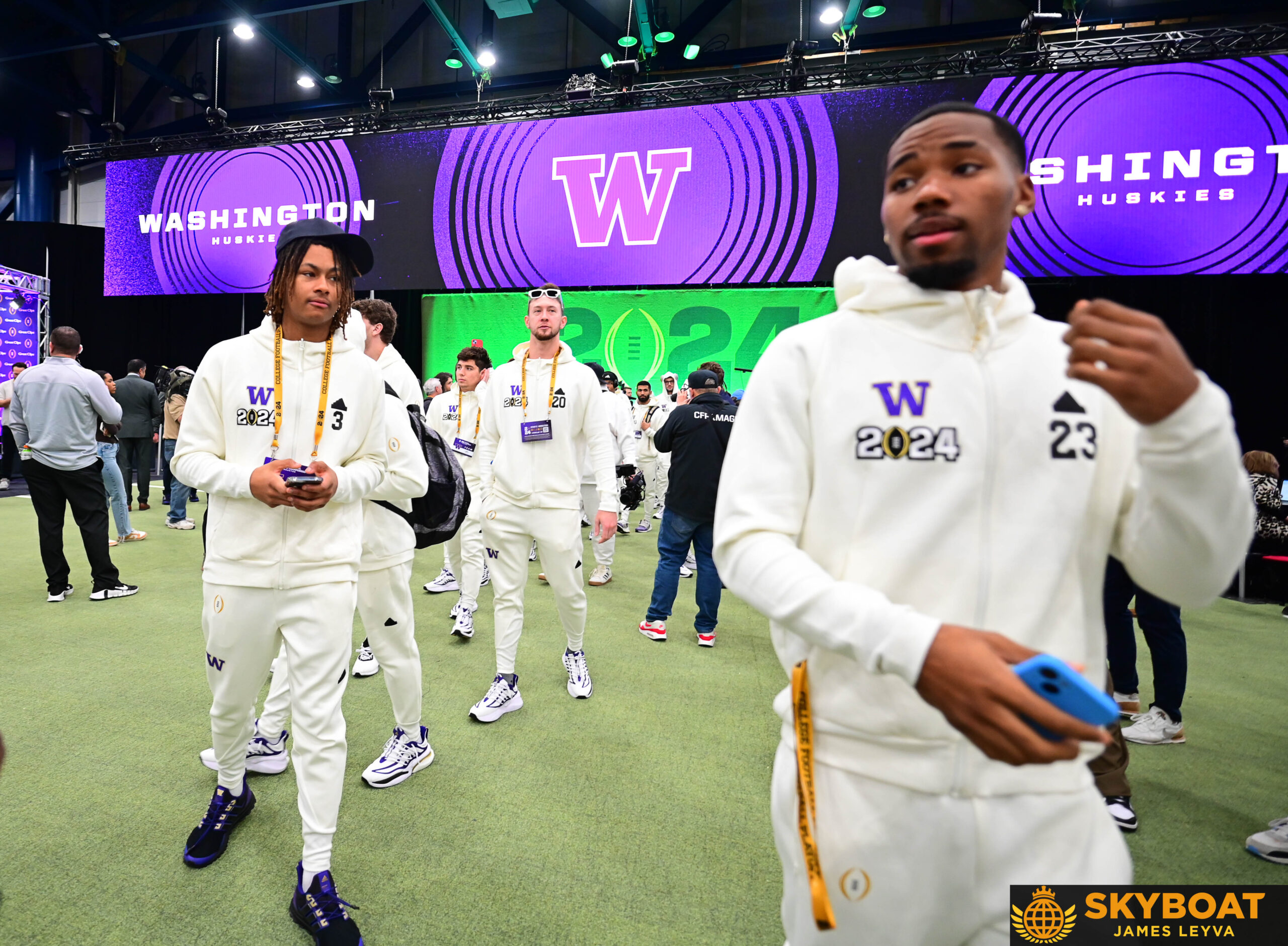 Lady Antebellum sings the National Anthem at AT&T Stadium in Arlington, Texas prior to the kickoff of the 1st ever College Football Playoff National Championship.
Lady Antebellum sings the National Anthem at AT&T Stadium in Arlington, Texas prior to the kickoff of the 1st ever College Football Playoff National Championship.
(Photo Credit: Don Montague / The SkyBoat)
There was a total of 9 bid cities including the three that won the bids. These cities were Minneapolis, Houston, Charlotte, South Florida, San Antonio and Detroit. Hancock thanked all of the bidding communities for the dedication they all put into their bids.
“This process began in January, and we’re just delighted and honored by the response from the nine wonderful communities. I want to first thank them all for their remarkable dedication and their attention to detail.” Said Hancock in his opening statement before addressing the media.
With the three cities that won bids, it makes official that the first 6 College Football Playoff National Championships would be held in 6 different states, far different from their BCS counterpart from previous. In the BCS era, the national championship site rotated between 4 different cities.
“We want to make sure as many people as possible get a chance to see this event.” Said Hancock in expressing the importance to the CFP on spreading out the love of the experience.
In any case, an event is only as good as its host. The CFP selected 4 of the first 6 National Championships to take place in cities that are currently scheduled as hosts to the Semi-Final’s. The relationship that these cities have with the College Football Playoff did come in as a factor.
“It came into a factor in one way for sure, in the fact that the city could not host the semifinal and the Championship game in both of the same year. So an example of that was Miami was not able to bid in 2019 because they have the semi-final and same for Atlanta for 2020.” said Hancock, ” You know, we discussed the fact that those 6 cities that host semi-finals, have already been selected by our group and rewarded the opportunity to participate in the college football playoff. It was not a deciding factor by any means, but we did take note of that fact.”
Cities that currently are in the Semi-Final rotation are Miami, Pasadena, Arlington, Atlanta, Glendale and New Orleans.
There were a few key factors that were highlighted for the reason’s why certain sites did not get selected. To start, Detroit had an issue with their convention center not being available. This took away a lot of the spark to Detroit’s bid due to the importance that the CFP saw with having many events in the convention center, an area where many locals would be familiar.
“We learned a lot in 2015, almost all of it good. We learned that we needed a big, vibrant convention center that people can go to and are accustomed to going to. And we learned that our event is only going to grow over time.” Said Hancock.
The other city that the College Football Playoff Management Committee had issues with was Minneapolis. Hancock referred to back-to-back-to-back marquee events being a reason why. There was concern that with the Final Four and the Super Bowl happing in the two years before the bid submitted by Minneapolis, that there might be fatigue amongst the community once the CFP Championship game came around in 2020.
The announcement comes just one day after the selection committee released their first top 25 rankings of the season, putting Clemson, LSU, Ohio State, and Alabama into their top 4. Full rankings available here.
This year’s College Football Playoff National Championship game will be played at University of Phoenix Stadium in Glendale, Arizona on January 11th, 2016. The two playoff semi-final games will be played in Arlington, Texas at AT&T Stadium in the Goodyear Cotton Bowl and in Miami at Sun Life Stadium in the Capitol One Orange Bowl on December 31st, 2015.
The National Championship will then be played in Tampa in 2017 at Raymond James Stadium on January 9th, 2017.



